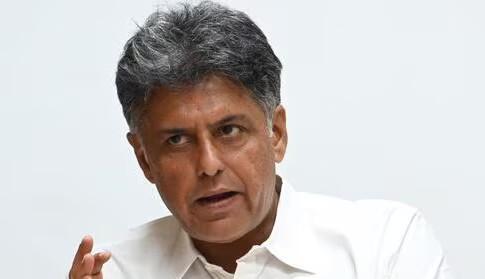
Against Constitution: Tewari on Bills to Remove Jailed PM, CMs
The recent move by the Union government to present three bills in Parliament aimed at removing Prime Ministers, Chief Ministers, and Ministers facing serious criminal charges has sparked a heated debate in the country. While the government has claimed that these bills are necessary to cleanse the system of corrupt officials, many have expressed concerns about the potential misuse of state instrumentalities and the impact on the fundamental rights of the citizens.
One such voice of dissent is Congress MP Manish Tewari, who has strongly opposed the bills, calling them “against the basic structure of the Constitution.” According to Tewari, the Indian Constitution is clear in its stance that one is innocent until proven guilty, and these bills disregard this fundamental principle.
The bills in question are the Constitution (Amendment) Bill, 2023, which seeks to empower the President to remove the Prime Minister, the Chief Minister, and other Ministers facing serious criminal charges; the Constitution (Amendment) Bill, 2023, which aims to give the President the authority to dismiss the Chief Minister and other Ministers; and the Constitution (Amendment) Bill, 2023, which proposes to empower the President to remove the Prime Minister and other Ministers.
Tewari has expressed concerns that these bills have the potential to be misused by the government, allowing them to arbitrarily remove elected officials without due process. He has also pointed out that these bills are a clear departure from the principles of parliamentary democracy, where the elected representatives are accountable to the people and not the President.
The Congress MP has also highlighted the fact that these bills are a direct attack on the independence of the judiciary, as they seek to empower the President to dismiss the Chief Minister and other Ministers without any judicial oversight. This, he argues, is a clear violation of the principle of separation of powers, which is a fundamental tenet of democratic governance.
Tewari has also expressed concerns about the impact of these bills on the rights of citizens. He has pointed out that these bills have the potential to be used as a tool of political vendetta, allowing the government to target its political opponents and dissenting voices. He has also expressed concerns about the potential for these bills to be used to suppress dissent and stifle free speech.
The Congress MP has also argued that these bills are a clear attempt by the government to undermine the institution of the Constitution and the rule of law. He has pointed out that the Constitution is a sacred document that has been crafted over several decades, and it is the duty of the government to protect and uphold it, not to undermine it.
Tewari has also expressed concerns about the lack of transparency and consultation in the process of drafting these bills. He has pointed out that the government has not held any public consultations or debates on these bills, and that they were presented in Parliament without any prior notice or discussion. This, he argues, is a clear violation of the principles of democratic governance, where the people have a right to be heard and consulted on matters of national importance.
In conclusion, the bills presented by the Union government to remove Prime Ministers, Chief Ministers, and Ministers facing serious criminal charges have raised serious concerns about the potential misuse of state instrumentalities and the impact on the fundamental rights of citizens. The opposition to these bills by Congress MP Manish Tewari and other like-minded individuals is a testament to the importance of upholding the principles of democratic governance and the rule of law.
As the debate on these bills continues, it is essential that the government takes into account the concerns and objections raised by the opposition and civil society. It is also essential that the government conducts a thorough and transparent consultation process to ensure that the views and concerns of all stakeholders are taken into account.
Ultimately, the fate of these bills will depend on the willingness of the government to engage in a constructive and inclusive dialogue with the opposition and civil society. If the government is serious about upholding the principles of democratic governance and the rule of law, then it must be willing to listen to the concerns and objections of all stakeholders and make necessary changes to the bills.






